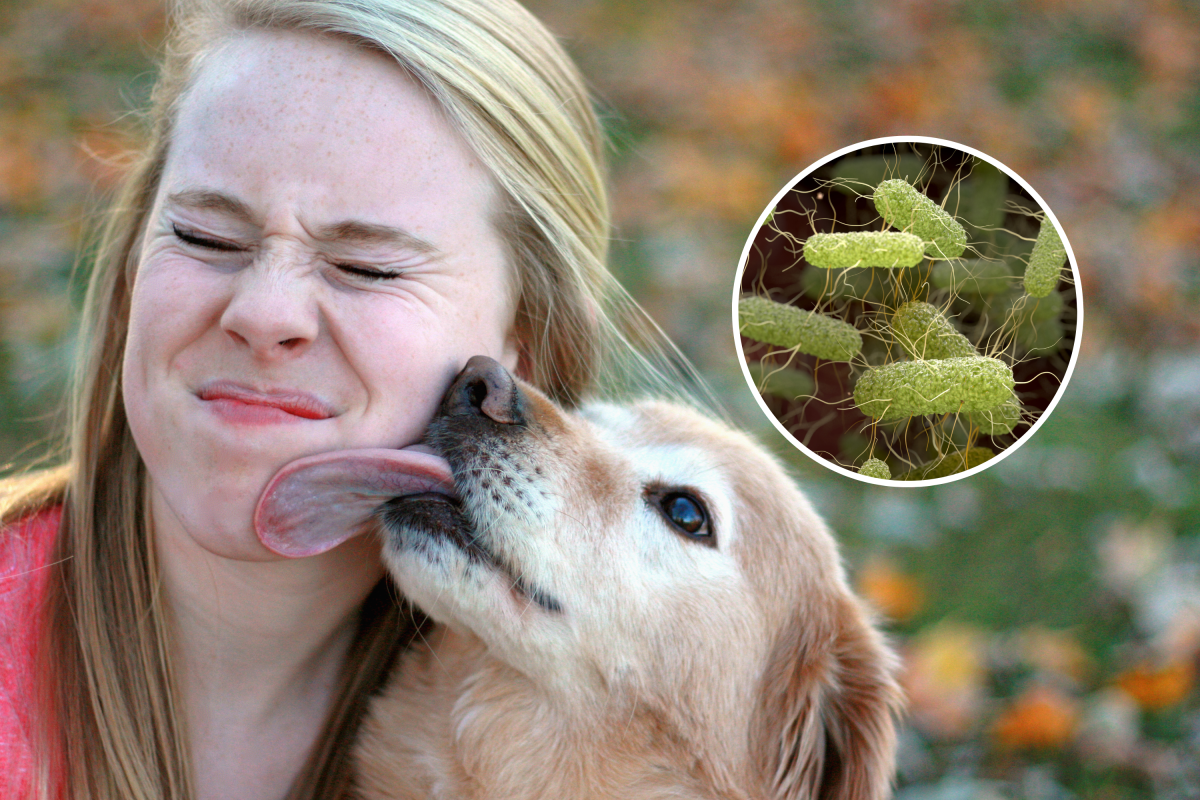Pet dogs are an important but overlooked source of salmonella infections among humans, a recent study from Penn State University (PSU) has found.
Hygiene practices of dog owners, dog food safety and antibiotics given to dogs could all impact the likelihood, severity and treatability of salmonella infections in humans, the scientists concluded.
"This reminds us that simple hygiene practices such as handwashing are needed to protect both our furry friends and ourselves," said study co-author Nkuchia M'ikanatha, lead epidemiologist for the Pennsylvania Department of Health and PSU food scientist, in a statement. "Our dogs are family but even the healthiest pup can carry salmonella."
Salmonella are bacteria that can cause infections, called salmonellosis, from eating contaminated food, drinking contaminated water or touching animals and their poop.
The Centers for Disease Control and Prevention (CDC) estimates that salmonella causes about 1.35 million infections in the U.S. each year and is the leading cause of hospitalizations and deaths linked to foodborne illness.
Anyone can get salmonellosis, but the infection can be more severe—and even life-threatening—among young children, especially babies; adults aged 50 or more with underlying medical conditions such as heart disease; adults aged 65 or more; and people with weakened immune systems.

"Salmonella is a quintessential human microbe, its presence intertwined with our history since the dawn of agriculture," said M'ikanatha. "Emerging research suggests this pathogen may have shadowed humanity for some 10,000 years, coinciding with the rise of animal domestication."
But pet dogs as a source of human infection with salmonella has been overlooked, the scientists said, while many of us are aware of the threat posed by contaminated food.
"Especially with salmonella, we think about the role of agriculture and transmission—we think about eggs, we think about beef," said Sophia Kenney, a doctoral bioscience student in PSU's Department of Animal Science, who spearheaded the study, in a statement. "But the thing is, we don't let cows sleep in our beds or lick our faces, but we do dogs.
"Salmonella infections in dogs are not common but we're aware of foodborne outbreaks related to pet treats or from contact with contaminated pet food and improper food handling."
To investigate the relationship between salmonellosis in dogs and humans, the PSU scientists used data from the U.S. Food and Drug Administration (FDA)'s Veterinary Laboratory Investigation and Response Network to analyze the strains of salmonella identified in pet dogs from May 2017 to March 2023.
They found 87 cases of salmonella in dogs in that time period, and then compared these strains with those found in humans and recorded in the National Center for Biotechnology, at the National Institute of Health (NIH).
The scientists found 77 cases of salmonella that were suspected to have come from contact with dogs, involving 164 different strains of salmonella, collected in 17 U.S. states.
Most of the strains of salmonella found in dogs were ones that could also infect humans, and all of the strains identified in dogs and humans possessed antimicrobial resistance genes to important drugs.
Kenney said in a statement that their data emphasized "the importance of antimicrobial stewardship" in dogs, using what she called a "One Health" framework.
"One Health is an approach that recognizes that the health of people is closely connected to the health of animals and our shared environment," said Kenney.
Team leader Erika Ganda, assistant professor of food animal microbiomes at PSU, said it was important to remain vigilant and informed about the potential risks of salmonella, especially when living closely with them.
"At the same time, several studies highlight the significant physical and mental health benefits of owning a dog, including reduced stress and increased physical activity," she said. "Our goal is not to discourage pet ownership but to ensure that people are aware of potential risks and take simple steps, like practicing good hygiene, to keep both their families and their furry companions safe."
This study was funded by the U.S. Department of Agriculture, CDC, NIH and FDA. It was published in scientific journal Zoonoses and Public Health.
Is there a health problem that's worrying you? Do you have a question about salmonella? Let us know via health@newsweek.com. We can ask experts for advice and your story could be featured in Newsweek.
Reference
Kenney, S. M., M'ikanatha, N. M., Ganda, E. (2024). Antimicrobial Resistance and Zoonotic Potential of Nontyphoidal Salmonella From Household Dogs, Zoonoses and Public Health, 72(1). https://doi.org/10.1111/zph.13174




















 English (US) ·
English (US) ·